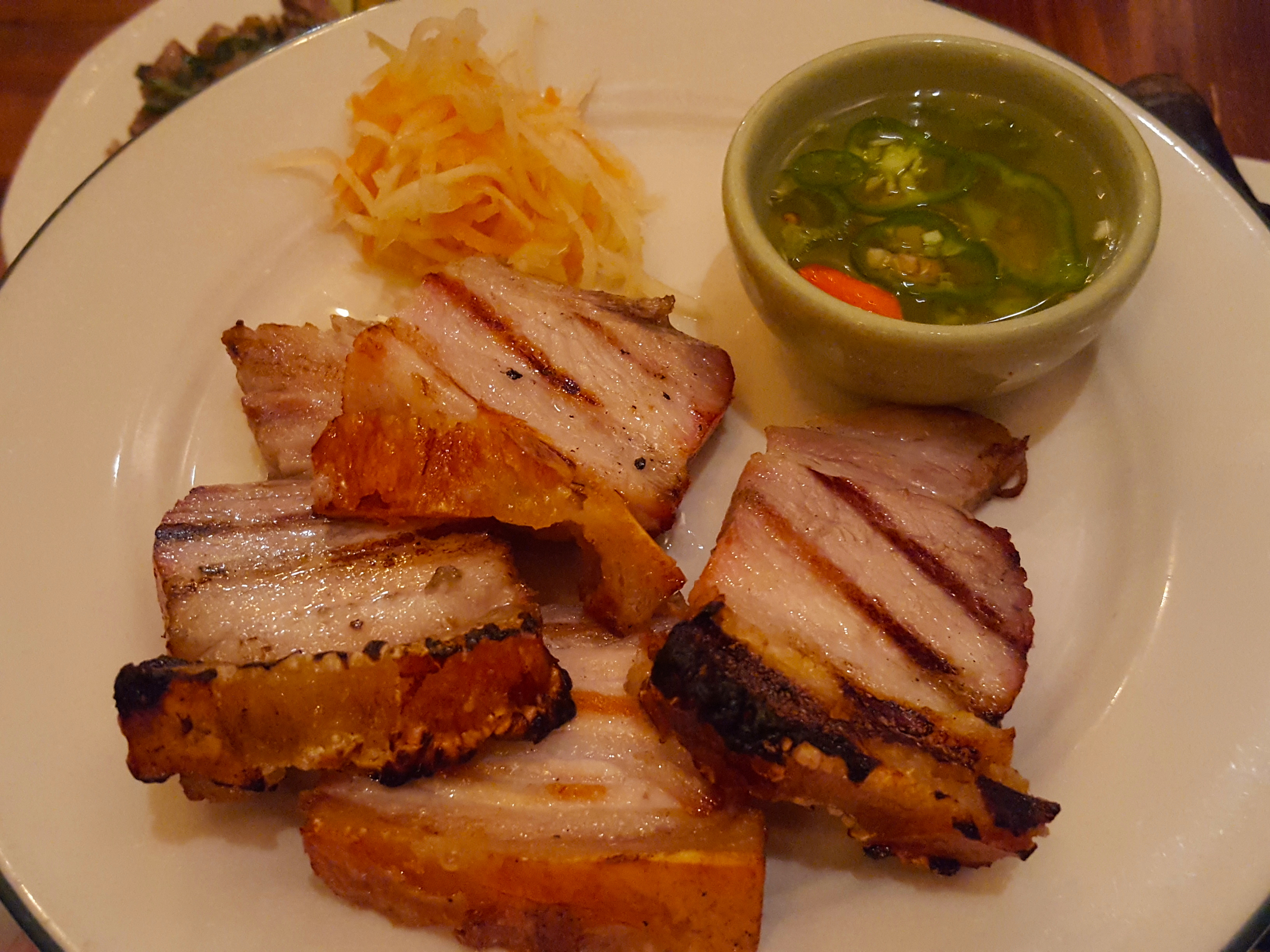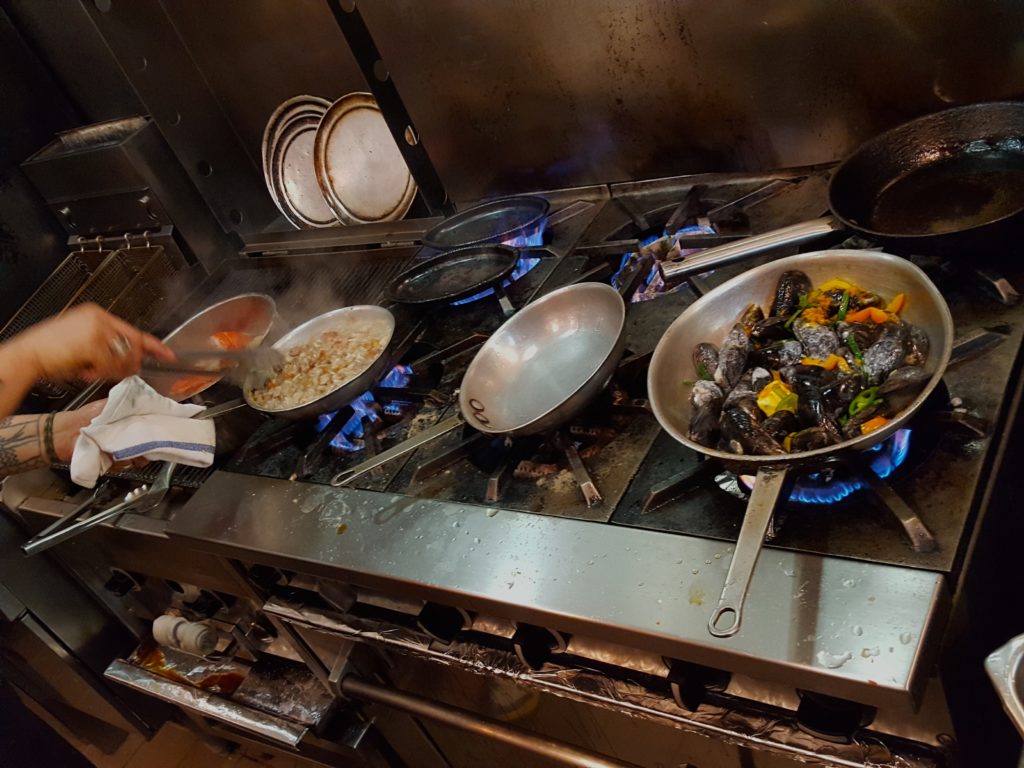Listen to Rosalind Tordesillas’ story on PRI’s The World

Lechon kawali (Crispy Fried Pork Belly); photo: Rosalind Tordesillas
A century ago, a fake village of real indigenous Filipinos was a big hit at the St Louis World’s Fair. Crowds gawked at brown people performing a dog-eating ritual.
As the US began an almost 50-year occupation of the Philippines, Filipinos were shown as savages who had to be civilized. In the Philippines, American colonizers set up the public school system. Kids were taught that Filipino food was unhealthy, and that Western dishes and processed food like canned milk were superior.
Some food writers have said the slow emergence of Filipino food in the U.S. is partly due to a sort of cultural shame or ‘hiya’ felt by Filipino immigrants about their food.
Fi2W’s podcast producer and former journalism fellow Rosalind Tordesillas produced a story for PRI’s The World that explores the deep political, cultural and culinary history behind this complex and delicious cuisine.
Fi2W is supported by the David and Katherine Moore Family Foundation, the Ralph E. Odgen Foundation, the J.M. Kaplan Fund, an anonymous donor and readers like you.




